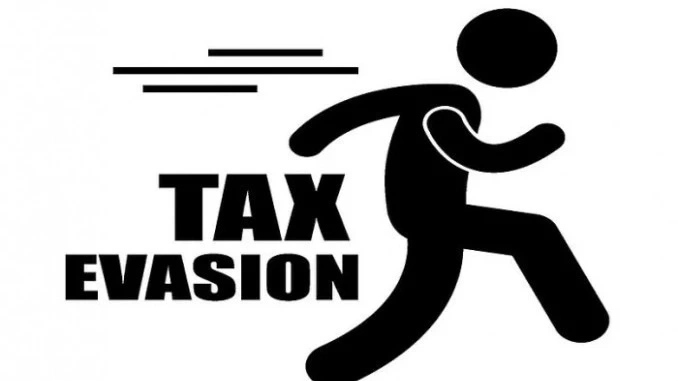10 Problems of VAT Administration in Nigeria and Possible Solutions
VAT – Value Added Tax is a tax imposed on goods and services consumed. It is an indirect tax wherein the burden of the payment is borne by the final consumer of the goods and services. Examples of goods and services which VAT can be imposed on are alcohol, cigarettes, MTN recharge cards e.t.c.
The history of VAT in Nigeria reveals that the government decided to diversify from the oil revenue and seek for another source of revenue in order to meet the needs of the growing public expenditure.
👉 Relocate to Canada Today!
Live, Study and Work in Canada. No Payment is Required! Hurry Now click here to Apply >> Immigrate to CanadaThe tax was created by the VAT Act No. 102 of 1993 which became effective from January 1994 which requires manufacturers, wholesalers, importers and suppliers of VAT imposed goods and services to be registered within six months of commencement of business. VAT is collected only by the Federal Inland Revenue Service at the rate of 5% of the value of goods and services supplied.

The registered person is expected to be charged and collect VAT on supplied goods and services. The amount collected is the VAT output. On the other hand, a purchaser of VAT imposed goods and services is also expected to pay VAT of 5% on the goods and services supplied to him. These constitutes the VAT input.
The tax is calculated as the difference between the output and the input which represents the amount payable to the FIRS (Federal Inland Revenue Service).
Read Also: Causes of tax evasion in Nigeria and effects on the economy
Therefore, the amount is payable where the output tax exceeds the input tax. And where the input exceeds the output tax, this may be claimed from the revenue.
From inception to date, VAT is seen as one of the major good sources of revenue to the government which had remarkable effect of stimulating the economic growth, investment and capital formation of the nation Nigeria.
However, at every increasing impact of VAT in Nigeria’s economy, it faces challenges and obstacles that stands against its successful administration in Nigeria. The following are the problems to be examined.
1. Inadequate VAT Zonal Offices.
👉 Relocate to Canada Today!
Live, Study and Work in Canada. No Payment is Required! Hurry Now click here to Apply >> Immigrate to CanadaThis is one of the challenges affecting the successful administration of VAT in Nigeria. Few VAT zonal offices were created to regulate proper VAT in some States. This leads to increase in work load of the few zonal offices resulting into slow response to old, new and about-to register business owners. This tends to dissuade business owners from making their VAT collection and rendition of returns.
2. Non-Compliance of Business Owners.
Many business owners neglect and fail to comply with rules and regulations of VAT system in Nigeria. Some business owners after registering, automatically becoming a non-commission earning agents to FIRS for VAT, fail to make their monthly VAT rendition and payment regularly. The burden of tax under VAT is regressive and some business incurs additional cost of keeping VAT records and processing information required for the payment of the tax and jointly returned from tax agent. This makes it difficult for VAT computation and administration in Nigeria.
Read Also: How to Start a Taxi Business in Nigeria
3. Lack of Transparency.
Lack of transparency on the part of the tax authority is also one of the problems affecting the administration of VAT in Nigeria. There will queries raised in an instance whereby the VAT input exceeds the VAT output because of the reluctance of tax authority to refund taxpayers. When the taxpayers notices that this continues with no change, they stop making their VAT renditions of returns.
4. Evasion of VAT-able Goods and Services.
Some taxpayers consider VAT as an additional burden on them and will sometimes avoid buying VATable products if they are aware that it is being charged. The prices of this products are high compiled with the VAT imposed on them. This tends to scare taxpayers and it makes VAT administration difficult.
5. Non-compliance of Some States in Nigeria.
Some States in Nigeria do not comply to imposition of VAT. It has been discovered that some of the products like alcohol are restricted from VAT in some States. Such action hinders the movement, growth and success of VAT administration in Nigeria.
6. False VAT Element of Transactions.
The VAT system requires that the VAT element of transaction is openly stated on the face of the invoice. Some business owners states false statements and figures on the VAT invoice in order to avoid VAT that is unfavourable to them. The tax authority frowns at this act and this has been one of the hindrance to the successful administration of VAT in Nigeria.
7. Lack of Funds
For an administration to run effectively, it needs adequate and sufficient funds. VAT administration in Nigeria faces the challenge of lack of funds to carry out its activities and regulation around the country. With adequate funds, successful and positive results will be derived.
8. Inadequate Workforce
This is also a problem encountered by the VAT administration in Nigeria. Day by day, increasing number of business and industries register for VAT at various VAT zonal offices. Each business and industry are being monitored to check the update of their VAT rendition and payment. This leads to the need of more personnels to provide successful VAT administration.
9. Lack of Adequate Orientation
Some business owners, consumers of goods and services do not know about the benefits of compliance to the VAT system in Nigeria. Many believe or assume that VAT is another avenue of the government to extort funds from the people after hearing series of corruption cases. However, VAT is a source of revenue for the
government used in improving the welfare of the people. Inadequate orientation tends to affect the effective administration of VAT in Nigeria.
Read Also: How to Get Taxpayer’s Identification Number, TIN, in Nigeria
10. Apathy Towards VAT
Some business owners and consumers shows no interest or enthusiasm about VAT. This has caused a widespread damage which affects VAT adminsitration in Nigeria.
These and lots more are problems facing the VAT administration in Nigeria. Reliable solutions are needed to prevent immediate collapse of the VAT administration in Nigeria and ensuring successful and continuous progress. The following can be proffered as reliable solutions.
Read Also: Problems and Prospects of Taxation in Nigeria
Creation of more awareness of VAT to the general public. Avenue of orientation should be made available to both business owners and consumers in order to correct their beliefs about VAT and inform them of the benefits and operations of VAT. This will make VAT admimistration in Nigeria easier and efficient.
Increase in VAT personnel workforce and VAT zonal offices in Nigeria will help in the efficient running of proper VAT operation across the country. This will lead to the successful administraion of VAT in Nigeria.
Provision of adequate funds by the government for the running of VAT operations in Nigeria will bring out tremendous result and success.
Read Also: Solutions to Tax Evasion and Avoidance in Nigeria
Adherence to VAT laws in Nigeria should be thoroughly emphasized to business owners and consumers. This will help in the speedy progress of VAT administration in Nigeria. With these solutions, VAT administration in Nigeria will be efficient and the good welfare of the people will be guaranteed.
In conclusion, the government and the citizens of Nigeria should work together and make VAT administration in Nigeria a success.





